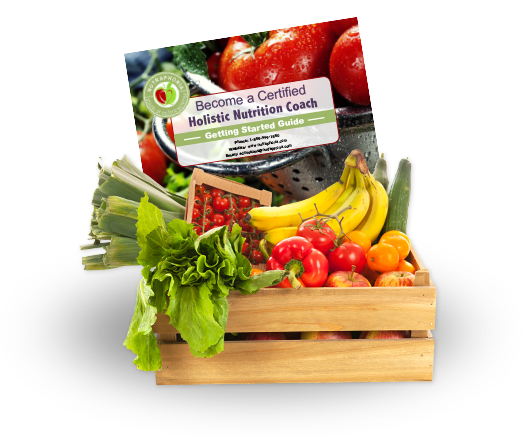October 4, 2017
Avocados, A Superfood?
I am fascinated with avocados! This is not just some random fascination, I actually have a huge beautiful avocado tree in my garden!

A couple of years ago I moved from Europe to a tiny beautiful island in the Caribbean with my husband and kids. In September last year we moved to a house and there it was: my own avocado tree! During the months of October and November, the avocados literally fell out of the tree; it rained avocados in my garden!
Because of this abundance of avocados, I decided to do some research to find out if avocados are really as healthy as many people claim they are. Are avocados a superfood; do they actually provide high nutrient values that may also provide health benefits?
Let’s start with some basics and look at the facts.
Fruit or vegetable?
Avocados, also known as Persea Americana grow on a tree that is native to Mexico and are a member of the flowering plant family ‘Lauraceae’. There are many different types, however, the Hass avocado is one of the best-known varieties today. An avocado has a leathery green skin and a creamy texture. Because of its shape and appearance, it is also known as ‘alligator pear’. But is it a fruit or a vegetable? Technically, an avocado is considered a fruit; it’s basically a large berry with a single seed. It is fair to say that the avocado is a rather unique type of fruit!
What’s in it?
Nutritional facts
Avocados contain a wide variety of nutrients, including different vitamins, minerals & phytonutrients. One average avocado has about 300 calories, but for ease of comparison with other foods, let’s look at a single serving of 100 grams or 3.5 ounces.
Macronutrients
Macronutrients are energy yielding nutrients that are required in relatively large amounts in the body: carbohydrates, proteins, and fats (lipids). While most fruits consist primarily of carbohydrates, avocados are actually high in fats and therefore high in calories. A single serving of avocado has 160 calories, of which 2 grams of protein, 15 grams of fats and 9 grams of carbohydrates. Approximately 73% of an avocado consists of water, which is a macronutrient that does not provide energy.
Micronutrients
Micronutrients are nutrients that do not provide energy and are required in relatively small amounts in the body: vitamins and minerals. Avocados contain approximately 20 vitamins and minerals. Below is a list of the most abundant ones based on the percentage of Recommended Dietary Allowances (RDA). The RDA is the average amount of a nutrient a healthy person should get each day.
- Vitamins: Vitamin K (26%); Vitamin C (17%); Vitamin B5: Pantothenic Acid (14%); Vitamin B6: Pyridoxine (13%); Vitamin B9: Folate (20%); Vitamin E (10%)
- Minerals: Potassium (14%); Copper (9%); Magnesium (7%); Manganese (7%)
Phytonutrients
Phytonutrients or ‘plant nutrients’ refer to all substances in plants, other than the macro and micronutrients discussed above, that provide specific health benefits. Avocados contain alpha-carotene, caffeic acid, cryptoxanthin, isolutein, lutein, coumaric acid, pinene, quercetin, violaxanthin and zeaxanthin.
Do avocados provide health benefits?
Let’s have a closer look at these nutrient facts and highlight some of them.
The fats in avocado consist mainly of so-called ‘healthy fats’, being monounsaturated fatty acids. The most abundant fatty acid in avocados is oleic acid, which is also the main component of olive oil. Healthy fats keep you full and satiated, can improve heart health and lower cholesterol. The high-fat content also helps increase absorption of the fat-soluble vitamins A, D, E & K as well as certain minerals and phytonutrients both from the avocado itself and from other foods you eat with it.
Compared to other fruits, avocados contain very little sugar. From the 9 grams of carbs, 7 grams are dietary fiber. Fiber is a plant-based nutrient, which passes through the intestinal tract relatively intact. Fiber helps provide a feeling of fullness, can help to prevent constipation, maintain a healthy digestive tract and lower the risk of colon cancer.
Avocados are high in potassium, and contain even more of this essential mineral than bananas. Potassium is beneficial for blood pressure control, which in turn reduces the risk of heart attacks, strokes and kidney failure.
Avocados contain the phytonutrients lutein and zeaxanthin, which are important for eye health and may reduce the risk of age-related eye diseases.
In addition to the above-mentioned health benefits avocados have also been linked to having cancer-fighting properties, reducing symptoms of arthritis and helping in weight loss.
Conclusion
Avocados have a lot going for them and based on that, they rightfully deserve to be called a superfood! Not only are they highly nutritious and provide health benefits; they are also highly delicious! They are the main ingredient in guacamole dip, a great addition to any salad and can be eaten simply as spread on your toast or sandwich. On top of that, this fruit is also gaining popularity in body and skin care products because its high level of fat adds to the moisturizing qualities of these products.
Are there really no downsides to this fruit? Well, there is a very small chance that you have an avocado allergy, but fortunately, this is rare. One thing to keep in mind is the high number of calories, despite the fact that the bulk of these calories are from healthy sources. So if you are trying to reduce your calorie intake, eating loads of avocados might not be the best option for you. Also, if you are taking blood-thinners, it is important to be aware of the high vitamin K content of avocados, as vitamin K helps your body by making proteins for blood clotting.
I will continue eating my avocados and I may even attempt to make a face or hair mask. However, as with many things in life, it’s all about balance and variety in your diet!

